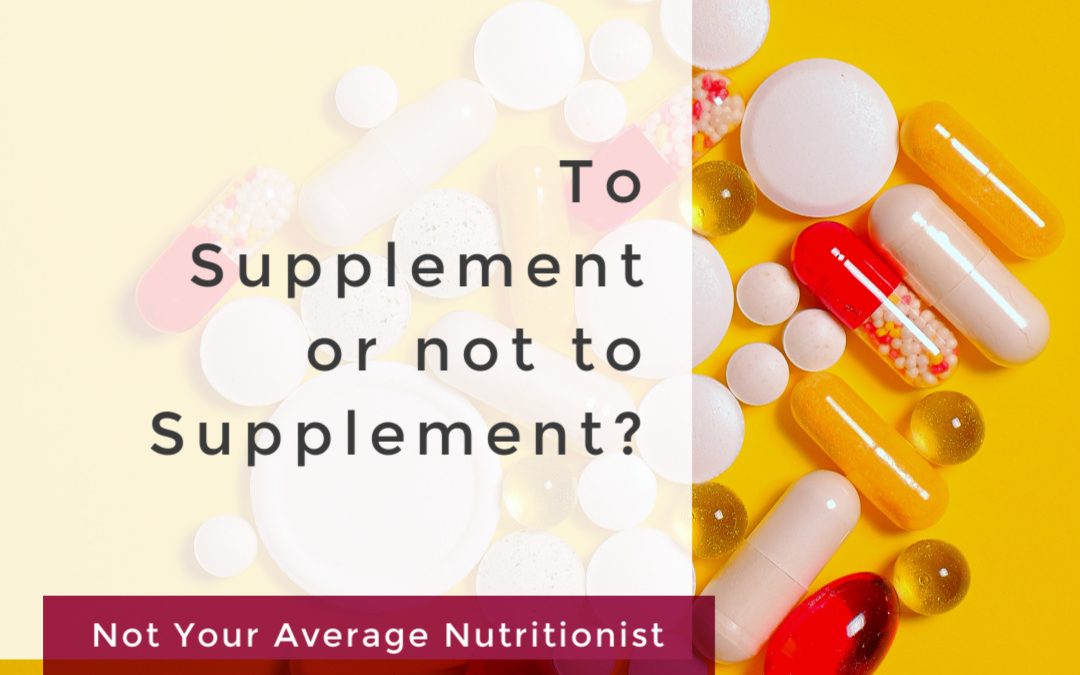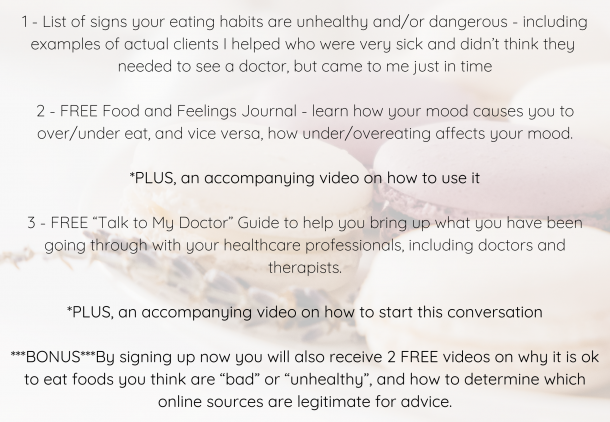Considering supplements to boost your health? What do you take? Do you even need them? More is better, right? Let’s dig in a bit and see….
Dietary supplement, as defined by the Food and Drug Administration (FDA) is, “A product taken by mouth that contains a dietary ingredient intended to supplement the diet.” Categorized as “foods,” supplements are not as regulated as drugs, nor does their safety need to be approved by the FDA before selling. Furthermore, herbal/botanical supplements can interfere just like drugs with other medications you may be taking and/or medical conditions (ex: renal failure, diabetes, pregnancy, etc.).
The serving size, or % daily value, is not regulated in supplements, but labels are required to follow certain guidelines including: identity, quantity, directions, supplement facts panel, other ingredients, and manufacturer’s address for more information.
Do I need to take supplements?
Know that supplements are not intended to replace good nutrition,
they are a “supplement” not an “instead-of.”
Vegans and strict vegetarians may need certain supplements. Speak to your Dietitian or Doctor about this.
Different stages of the lifecycle and different disease states may benefit from certain supplements.
Analyze your total diet first- are you lacking in certain nutrients? Try to find food sources first.
Taking some supplements can be harmful, and taking any in excess can be fatal. Many water-soluble vitamins and minerals are not easily absorbed; therefore, you are just paying for expensive urine.
Looking for a weight-loss pill? While many might not “hurt” you, know that if there was a magic pill there would not be an obesity epidemic. (And many supplements can definitely do damage!)
Are you pregnant or planning to become pregnant? A multi-vitmain with iron and Folic Acid can be necessary if diet is lacking, to prevent infant abnormalities like spina-bifida.
Inadequate calcium intake? Calcium + Vit D taken seperatly from calcium containing foods can be beneficial in preventing bone loss. (btw- there are vegan foods that contain calcium! Try dark green leafy veggies, like bok choy).
When researching and selecting supplements, ask yourself:
What is the purpose of the source (website, advertisement, article) you are getting the information from? Do they have a vested-interest in selling? Or is this purely educational?
Is your doctor/whoever getting kick-back from the company to sell it?
Claims that are supported by scientific evidence are important! How big was the study (s)? Same demographic of people as yourself? Were the results significant?
“USP” or “U S Pharmacopoeia” should be on the package, to indicate that standards of processing were followed for safety. (Note- this does not mean that the dose/ingredients are “safe” to consume, just manufactured in a safe environment.
“Natural” does not equal “safe.” Many toxic substances are “natural,” like Mercury.
I hope this helped you understand supplements better so that you can be safe, informed consumers.
If you have further questions about specific supplements please ask your doctor or registered dietitian.
Source: Nutrition: An Applied Approach, 3rd Ed. Thompson, J., Manore, M. Pearson Education, Inc. 2012. Pg 360-367.


